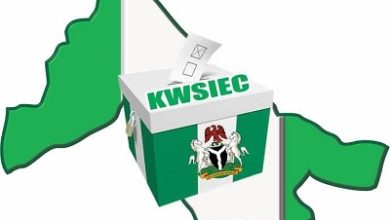Apapa: Beyond presidential directives

The problems with our ports east and west of the country are simply
man-made! But it is disappointing that in four years of this
administration; much progress has not been made. As a result of
persistent traffic jam leading up to the Nigerian ports in Apapa city
in Lagos, recently, President Muhammadu Buhari ordered the immediate
removal of all trucks from the roads and bridges within Apapa, Lagos.
This was to clear the gridlock in the area and restore sanity in the
transportation system that has gone bunkers. The initial ultimatum by
the president has been extended by another 14 days. We recall that in
2018, a similar directive was issued by Vice President Yemi Osinbajo
with virtually no positive effect. The problems in Apapa are
multifaceted. One is the expansion of imports and exports that has
rendered facilities inadequate, second is the fallout of reforms
carried out by the Obasanjo administration which changed a lot of the
operations in the port like the giving out of lands hitherto used for
parking of trucks to petroleum tank farms, three, is the persistent
concentration of port activities in Lagos and underutilisation of
other ports in Nigeria, especially the Eastern Ports.
Today, interestingly Nigeria and Benin Republic are competitors in the
maritime business. The two West African countries are competing to be
the Load Centre, otherwise known as trans-shipment base in West
Africa. Curiously, Contonou has remained the haven for Nigerian
importers even as about 60 per cent of all the imports to West Africa
are destined for Nigeria. What gets to Nigerian seaports is just about
10 per cent. The greater amount of cargoes are offloaded in
neighbouring ports in Cotonou and other West African states and then
trans-shipped or smuggled into Nigeria. Many countries of the world do
not have the luxury of multiple seaports. Some, actually, are
landlocked. Here, Nigeria is blessed with many natural harbours and
ports that, if well utilised, have the capacity to significantly
increase the nation’s revenue and, indeed, the Gross Domestic Product,
GDP.
The plight of ports at Nigeria’s eastern and delta coastlines are
largely technical such as shallow berths and draft deficiency of the
channels. The ports currently have berth depth of between 6 – 11
meters compared to the Lagos port with berth depth ranging from 9–13.5
meters. Standard port berths in other West African countries like
Accra, Ghana is 19 metres, Lome, Togo is 16 metres, Cameroon at 16
metres and Cotonou, Benin Republic at 15metres. With this technical
deficiency the ports at the eastern and delta coastlines are unable to
take container-bearing vessels that normally call at standard ports,
except for specialised vessels constructed as flat bottom which many
international shipping firms do not use.
True as these technical deficiencies may seem, they beg the question
as to why the nation should decide to abandon the facilities
especially as they can be corrected through dredging. The real issue
is a lack of political will on the part of the policymakers to take
the necessary measures required to expand the country’s economic
capacity. This is so because even the Lagos Ports are not properly
developed and not properly run. If we have the mess we endure everyday
in Lagos, we can only imagine where it is spread to ports in Warri,
Port Harcourt and Calabar. In the Apapa area, there are three ports.
There are also plans to open new ports in Badagry and Ibeju Lekki.
The Shippers Association of Cross Rivers State, recently said that the
Calabar Port, as it is, has the capacity to receive ocean going
vessels and ought to be explored by the Federal Government through
provision of incentives to stakeholders. They said that what the port
needs to receive bigger vessels is for the channel to be dredged.
That, in our view, is obvious. We consider it strange that export
goods from Cross River, a state that has a seaport, have to be taken
to Lagos before they are shipped out of the country. The dredging of
the channel and giving concessions to shipping lines should be the
long term sustainable measure.
We are glad however that dredging work has begun on the Warri Port and
the recent decision by the Nigerian Ports Authority, NPA to slash
harbour dues at the Eastern ports. The slashing of the harbour dues is
meant to attract vessels to the Eastern ports and decongest the Lagos
ports eventually. NPA said that slashing of dues is part of efforts to
increase patronage of the Eastern Ports. The discount will only
apply to harbour dues payable by the following types of
vessels/cargoes: Container vessels with at least 250 TEUs; General
cargo vessels with at least 16,000 MT; Combo Vessels with at least
16,000 MT and RORO Vessels with at least 250 units of vehicles. While
we commend the NPA for slashing the tariff for Eastern Ports, it is
important to stress that a lasting solution lies in dredging them to
accommodate big vessels so that importers in the region and beyond can
utilise them. While at it, we have to implement an efficient system
that removes articulated vehicles from Lagos roads so that traffic is
completely removed and folks who live in Apapa can breathe some fresh
air.





